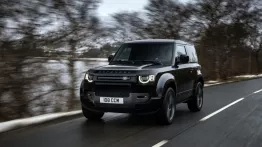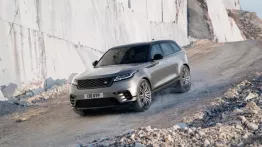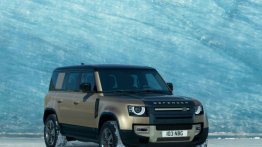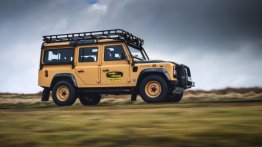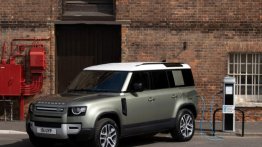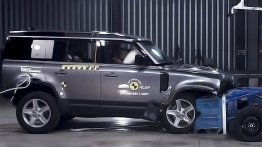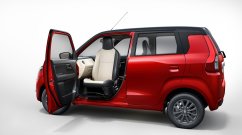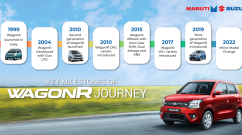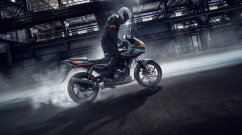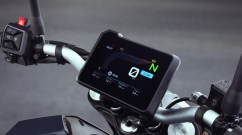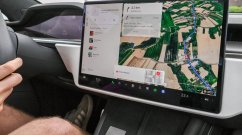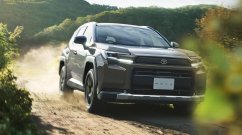Following the recent leak, Land Rover has officially revealed the 2018 Range Rover. Here’s a visual comparison between the 2018 Range Rover and 2013 Range Rover.
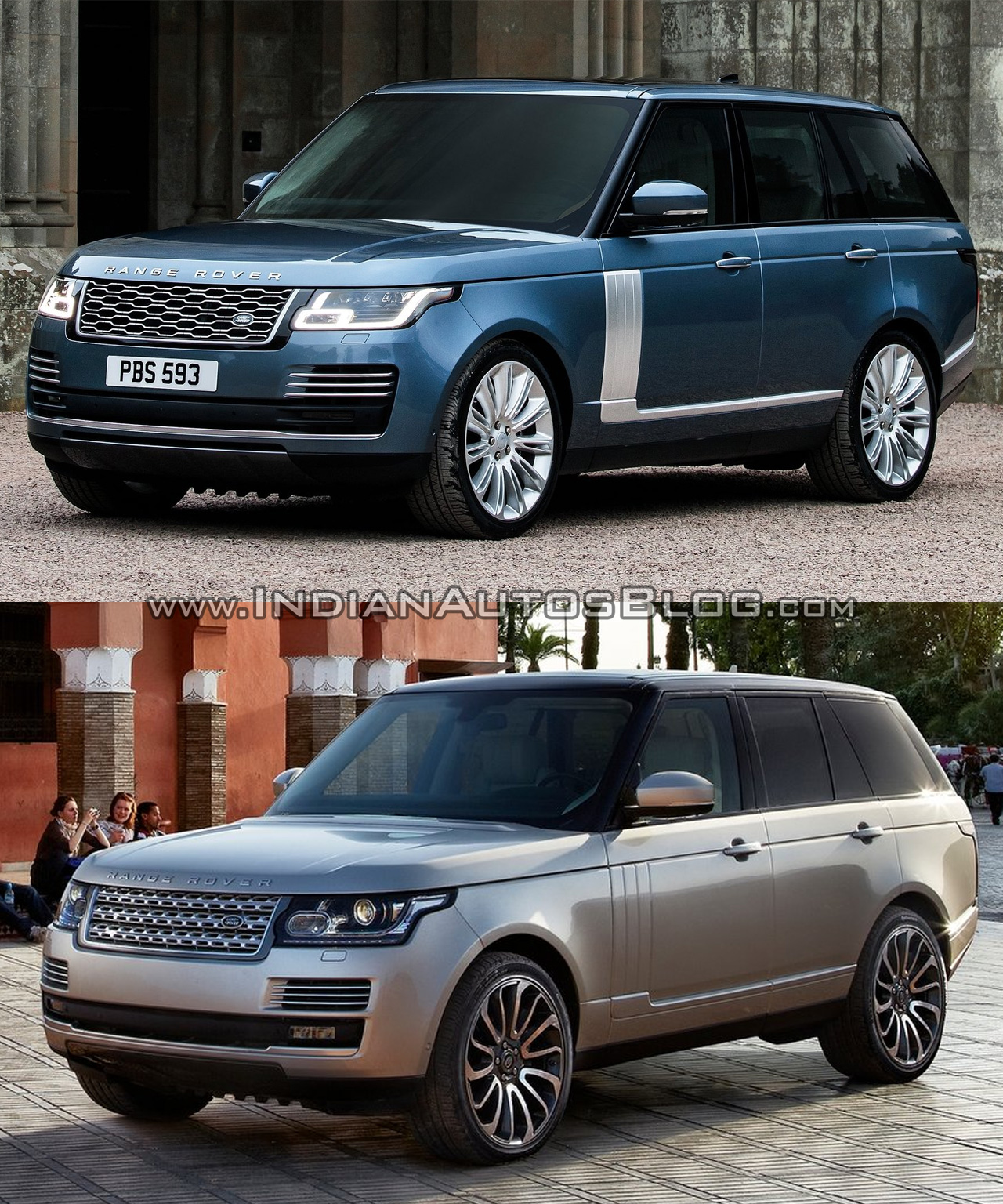
The 2018 Range Rover follows the footsteps of the 2018 Range Rover Sport with subtle exterior design changes. At the front, the facelifted Range Rover features redesigned radiator grille flanked by sharper headlamps featuring Premium/Matrix/Pixel/Pixel-laser LED lighting, remodelled bumper with widened vent blades and a longer bonnet.
Moving to the 2018 Range Rover’s profile, the refreshed lower side accents and vent graphics incorporate two alternative design schemes - Satin body-coloured and Atlas accent finish. Six new alloy wheel designs are available. At the rear, the new flagship Land Rover gets updated bumper with integrated exhaust tailpipes across the range. Two new metallic paint colours are now available: Rossello Red and Byron Blue.
Inside, the new Range Rover has new seats providing greater recline, legroom and foot space. The front seats are now asymmetrically wider on the outside for easier access. The foams in these seats are deeper. They also have new comfort interlayers. The Grained Leather 16-way electronically-adjustable front seats now feature heating and memory functions, while the 20-way Oxford Leather front seats have more luxurious upholstery and greater levels of personalisation. The top-of-the-range option is the Semi-Aniline Leather front seats with 24-way adjustment. The new model has 20% thicker (6 mm) glass to reduce sound intrusion.
For the rear passengers, the power recline controls have moved to the door now. New Executive Class Seating is available on Vogue SE models and standard in Autobiography derivatives. New wider seat frames, deeper foams and comfort interlayers combine with a seat cushion that leads into a C-pillar treatment for a lounge-like interior appeal. Also new is a power-deployable centre console. The old model’s rear centre console extended the full length of the rear cabin and was permanently fixed. The new model’s piece is available at the touch of a button and features a break at the centre footwell to let the passengers easily exit the vehicle.
Land Rover has increased onboard comfort by new massage function also, available for both front and rear passengers. The new Hot Stone massage function that heats up the four central heated massage elements but retains a cool or ambient temperature throughout the rest of the seat. The seats produce continuous rolling waves across the back and gently apply heat to the spine. There are total seven veneer choices, and four of them are new. Like the new Range Rover Sport, the new Range Rover also has the new Nanoe cabin ionisation system. The new model offers new three-zone ambient lighting as well.
As expected, the Range Rover has gained the Touch Pro Duo dual-screen infotainment system with the mid-cycle refresh. Technology highlights also include an all-new 12-inch high-resolution digital instrument cluster, next-gen head-up display system offering 10-inch full-colour projection, 10-inch touchscreens for the rear-seat entertainment system and the Active Key wristband that allows the customer to lock and unlock the vehicle without using the standard fob.
Land Rover has made some changes to the powertrain line-up too. The company has replaced the 3.0L SDV6 diesel hybrid model with a new P400e petrol-electric plug-in hybrid model. The plug-in hybrid powertrain comprises a 2.0-litre Ingenium combustion engine (300 PS/400 Nm) and an electric motor (116 PS/275 Nm). It produces 404 PS and 640 Nm of torque. The Range Rover P400e has fuel economy rating and CO2 emission ratings of 2.8L/100 km (35.71 km/l) and 64 g/km respectively.
The plug-in hybrid model has a 13.1 kWh lithium-ion battery mounted beneath the boot floor that provides a pure electric range of 51 km. Using a high power 32-amp wall box, this battery takes as little as 2 hours 45 minutes to charge completely. Using a 10 amp connection, though, this time increases to 7 hours 30 minutes.
Among other changes in the Range Rover's powertrain line-up, Land Rover has upgraded the 5.0-litre supercharged V8 petrol engines. The unit that developed 510 PS and 625 Nm of torque in the pre-facelift model develops 525 PS (+15 PS) and 625 Nm of torque. The unit that delivered 550 PS and 680 Nm of torque now puts out 565 PS (+15 PS) and 700 Nm (+20 Nm) of torque.
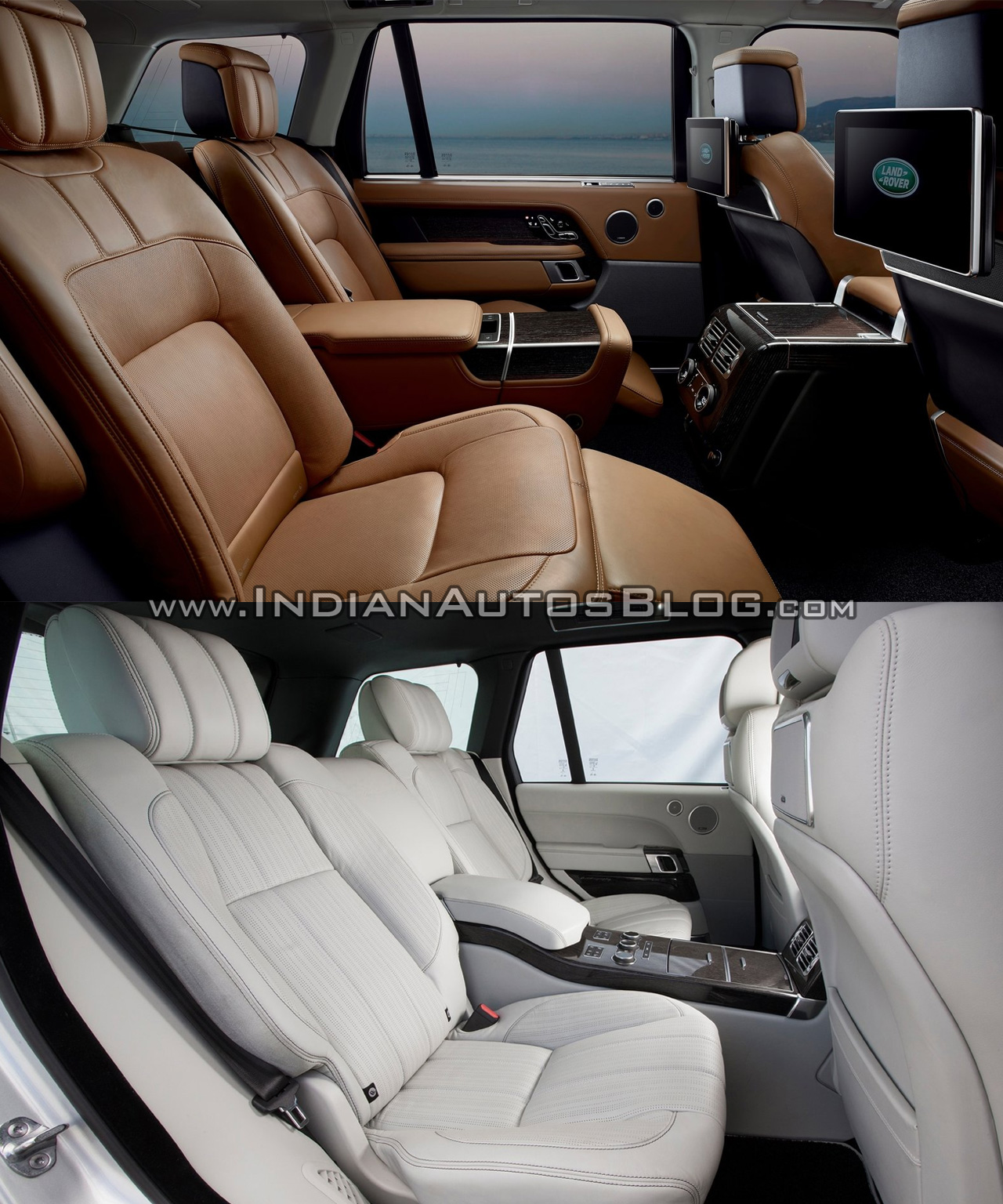
Also See: 2018 Range Rover Sport – in 5 live images
The 2018 Range Rover is now available to order, and its deliveries internationally will commence at the end of 2017.







